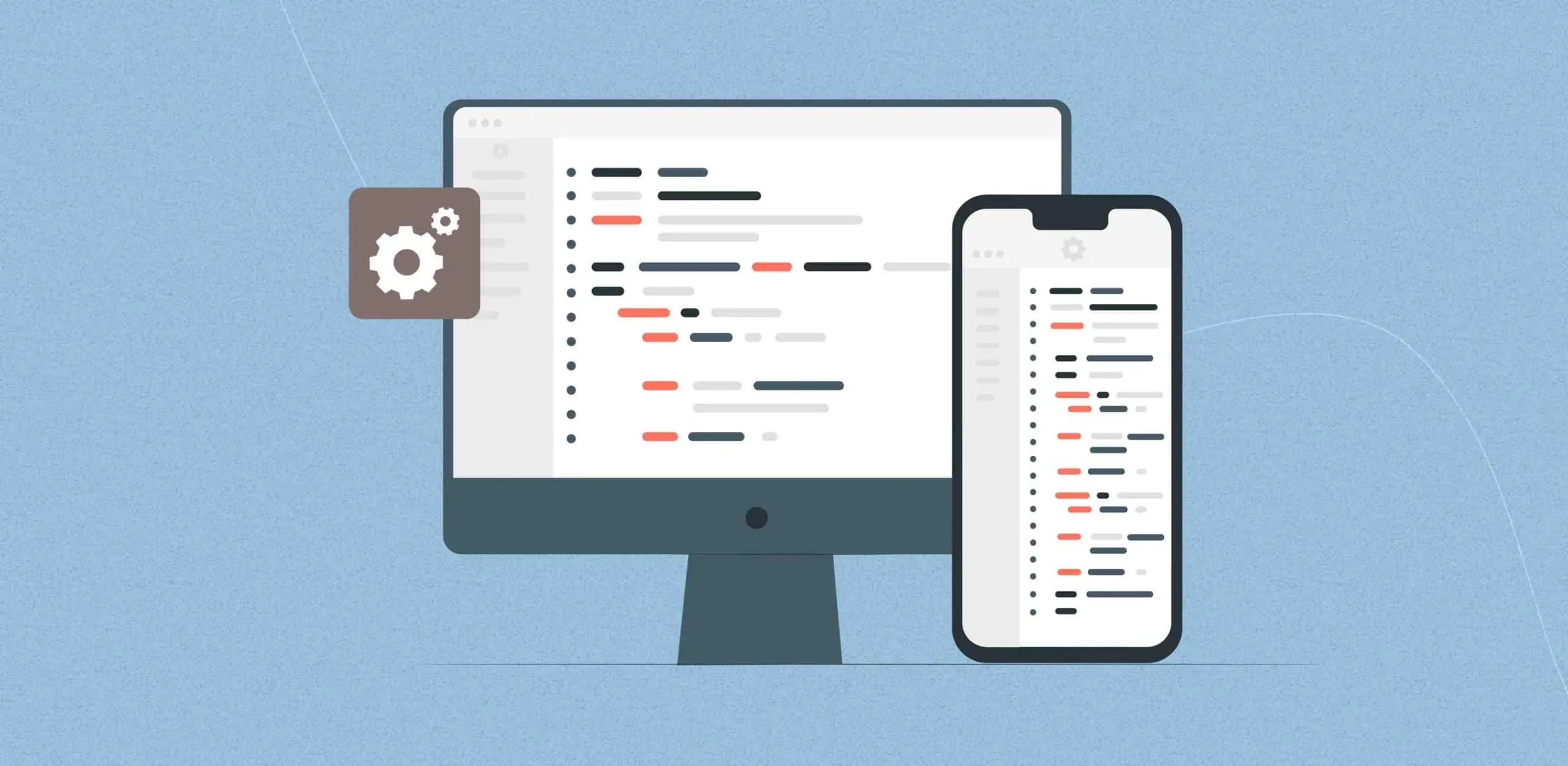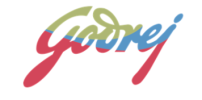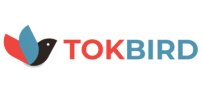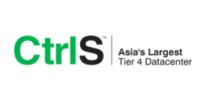Introduction
Custom eLearning App Development Services are transforming the way educational institutions and training providers deliver learning experiences. From universities offering hybrid courses to schools conducting online classes and enterprises implementing employee training apps, digital learning has become an essential part of modern education.
However, not all eLearning solutions provide the flexibility, engagement, and scalability required to meet diverse learner needs. Generic platforms often fall short, leaving institutions struggling to create personalized and interactive learning experiences. This is where custom eLearning app development makes a significant difference. Tailored applications empower institutions to provide secure, intuitive, and future-ready learning platforms that cater to students, teachers, and administrators alike.
In this blog, we’ll explore what to expect from Custom eLearning App Development Services—covering essential features, key integrations, compliance requirements, costs, and emerging trends. Whether you’re an educational institution, edtech startup, or corporate training provider, this guide will help you make informed decisions and select the right eLearning app development company for your needs.
Need an eLearning solution that grows with your institution? Talk to our consultants today.
Why Custom eLearning Apps Are Reshaping the Education Sector?
The education sector is experiencing one of the most rapid digital transformations in history. From K–12 schools to higher education and corporate training, technology-driven learning is no longer a luxury—it’s a necessity. Yet, the reality is that traditional “one-size-fits-all” platforms often fail to deliver the depth, flexibility, and personalization that institutions require.
This gap is exactly why Custom eLearning App Development Services are becoming a game-changer. By tailoring solutions to the unique needs of learners and educators, these apps are helping institutions drive engagement, ensure scalability, and achieve measurable outcomes. Let’s explore why custom eLearning apps are reshaping modern education.
Personalized Learning Paths
Every student learns differently—some grasp concepts quickly, while others need more time and guidance. Generic platforms rarely account for this diversity. Custom apps, however, integrate AI-driven adaptive learning and data analytics to personalize the learning journey.
- Students can access content tailored to their skill levels.
- Educators can track performance and adjust teaching methods accordingly.
- Institutions can improve learning outcomes through targeted interventions.
This individualized approach not only enhances academic performance but also keeps learners motivated and engaged.
Scalability for Growth
Education is dynamic, and institutions often face fluctuating student numbers. Off-the-shelf platforms may crash, slow down, or become expensive as user volumes rise. A custom eLearning app development company designs solutions with scalability in mind.
- Cloud-based architecture supports thousands of concurrent users.
- Institutions can add new modules, courses, or integrations without disruption.
- Growth becomes sustainable without compromising user experience.
For universities, training centers, or edtech startups planning long-term expansion, scalability is a must-have.
Institutional Branding & Identity
Your learning app is not just a teaching tool—it’s also a representation of your institution’s credibility. Custom apps allow institutions to maintain consistent branding across platforms.
- Personalized UI/UX that matches your school, university, or company’s identity.
- Branded dashboards, course layouts, and even notification styles.
- A professional look and feel that builds trust among students, parents, and corporate learners.
This level of customization helps institutions stand out in a competitive education market.
Better Engagement Through Modern Features
One of the biggest challenges in digital learning is maintaining student engagement. Custom eLearning apps incorporate features that transform passive learning into active participation.
- Gamification elements like badges, points, and leaderboards make learning fun.
- Real-time collaboration tools foster group projects and interactive sessions.
- Interactive dashboards help students visualize their progress and achievements.
When learners are engaged, retention rates rise, and the overall learning experience becomes more impactful.
Data Ownership & Security
Data is at the heart of modern education—student performance, attendance records, financial details, and more. With generic platforms, institutions often compromise control over this sensitive data. A custom education app development company ensures:
- Full ownership and control of institutional data.
- Compliance with FERPA, COPPA, and GDPR regulations.
- Advanced security features such as encryption, secure logins, and role-based access.
This not only protects students but also builds trust among parents and regulatory bodies.
Core Features to Expect in a Custom eLearning App Development
When investing in education app development, it’s important to ensure that your application caters to all stakeholders—students, educators, and administrators—while staying aligned with your institution’s goals. A well-designed custom eLearning app not only facilitates learning but also makes the experience engaging, measurable, and future-proof. Below are the core features you should expect.
Student-Centric Features
Students are at the heart of any eLearning platform. The features built for them should focus on accessibility, engagement, and personalization.
- Personalized Dashboards
Every learner should have a clear view of their progress, upcoming classes, assignments, and deadlines. A personalized dashboard creates a sense of ownership, keeping learners motivated and on track with their goals.
- Gamification
Features like quizzes, leaderboards, and digital badges make learning competitive and fun. Gamification helps improve retention rates and encourages consistent participation.
- Offline Learning Mode
Since not every student has constant internet access, offline learning ensures that course materials, videos, and notes can be downloaded and accessed later without disruptions.
- Push Notifications
Automated alerts for assignments, exam schedules, class reminders, and announcements ensure students never miss important updates.
By incorporating these features, an elearning application development company ensures that students remain engaged, motivated, and successful in their learning journey.
Teacher-Centric Features
For educators, the app should simplify course delivery and make it easier to monitor student performance.
- Virtual Classrooms
With integrated video conferencing tools, teachers can conduct interactive, real-time classes that simulate a physical classroom environment. Features like screen sharing, whiteboards, and breakout rooms enhance engagement. - Assessment Tools
Automated grading systems, quizzes, and feedback modules save time while providing students with immediate insights into their performance. - Content Management-Teachers need the ability to easily upload, edit, and manage course materials, from PDFs to recorded lectures, ensuring the learning content stays updated and relevant.
- Analytics
Detailed insights help teachers track class participation, identify struggling students, and personalize teaching strategies accordingly.
These tools not only empower teachers but also increase efficiency, making learning outcomes measurable and actionable.
Admin Features
Administrators need complete control over the platform to manage users, monitor performance, and ensure smooth operation across the institution.
- Role-Based Access
Different roles—students, teachers, parents, and admins—can have customized dashboards and access levels, ensuring data privacy and streamlined navigation. - Monetization Models
Whether it’s subscription-based, pay-per-course, or freemium, admins should be able to set up multiple revenue models depending on the institution’s strategy. - Institutional Reports-
Real-time reports on student progress, attendance, course popularity, and engagement metrics help institutions make data-driven decisions.
Admin-focused features turn the app into a powerful management tool, giving institutions a 360-degree view of operations.
Advanced Features for the Future
As technology continues to evolve, future-ready apps must integrate advanced capabilities to stay competitive and relevant.
- AI Tutors
Smart chatbots can assist learners by answering FAQs, offering course recommendations, or even providing instant feedback, acting as a 24/7 study assistant. - AR/VR Integration
Immersive technologies allow for virtual science labs, 3D medical simulations, or interactive history lessons, giving students practical, real-world experiences. - Social Learning Modules
Peer-to-peer discussions, group projects, and forums encourage collaboration and community building, making learning more interactive and engaging.
These innovations ensure that institutions stay ahead of trends, providing learners with experiences that are not only educational but also transformative.
The Development Process: What You Should Expect from an eLearning App Development Partner
Investing in custom eLearning app development services is more than hiring developers—it’s about aligning technology with your educational strategy, learner needs, and long-term goals. A reliable custom eLearning app development company will guide you through a structured, transparent process that ensures your application is both effective and scalable. Here’s what you can expect:
Discovery & Requirement Analysis
The foundation of any successful project begins with discovery. At this stage, the development partner works closely with your stakeholders to:
- Understand Your Vision: Whether you’re a university, school, or corporate training provider, the team maps out your unique objectives and learner expectations.
- Identify Your Audience: Defining who will use the app—children, college students, professionals, or employees—helps shape the user journey.
- Conduct Market & Competitor Research: Benchmarking against existing platforms ensures your solution stands out and avoids common pitfalls.
- Outline Technical Requirements: From device support to compliance needs (e.g., FERPA, GDPR), requirements are documented upfront.
This ensures clarity from the start, minimizing scope creep later in development.
UX/UI Design: Creating Intuitive Learning Experiences
Once the requirements are clear, the focus shifts to user experience and interface design. Here, accessibility and engagement are top priorities. A trusted education app development company will:
- Design for All Ages: Interfaces that work for a 10-year-old must be different from those targeting working professionals.
- Focus on Accessibility: Incorporating WCAG standards ensures inclusivity for learners with disabilities.
- Build Interactive Prototypes: Stakeholders can test mockups before full development, ensuring alignment with institutional goals.
- Prioritize Simplicity & Engagement: Clean dashboards, interactive elements, and personalized user journeys increase adoption rates.
This design-first approach ensures your elearning application development feels natural, not forced.
Agile Development: Iterative and Transparent
Modern app development thrives on agility. Instead of waiting months for a final product, Agile allows you to see progress continuously. Expect your partner to:
- Work in Sprints: Delivering functional modules every 2–3 weeks for review.
- Enable Feedback Loops: You can test, refine, and validate features as they are built.
- Integrate Third-Party Tools: From video conferencing APIs (Zoom, Google Meet) to payment gateways and LMS systems.
- Use Scalable Architecture: Ensuring your app can handle thousands of concurrent learners without downtime.
Agile methodology ensures flexibility, reduces risks, and keeps the project aligned with your evolving needs.
Testing & Quality Assurance: Ensuring Reliability
No educational institution can afford app crashes or broken experiences during live classes. A reputable custom eLearning app development company will rigorously test your application across multiple layers:
- Device & OS Compatibility: Ensuring seamless function across Android, iOS, tablets, and desktops.
- Accessibility Testing: Validating that visually impaired or differently-abled learners can access all features.
- Performance & Load Testing: Making sure the app scales during high-demand situations, like exams or training sessions.
- Compliance Audits: Ensuring FERPA, COPPA, and GDPR standards are met.
Thorough QA guarantees reliability, a crucial factor for reputation and adoption.
Deployment & Post-Launch Support: Long-Term Partnership
The journey doesn’t end at launch—education apps require ongoing updates and support. A skilled education app development company provides:
- Seamless Deployment: App store submissions, cloud hosting configuration, and server scaling.
- Continuous Monitoring: Proactive detection of issues before they affect users.
- Feature Enhancements: Adding AI modules, gamification, or AR/VR as your institution grows.
- Maintenance & Support: Security patches, bug fixes, and performance improvements.
This long-term collaboration ensures your platform remains modern, secure, and competitive.
Why This Process Matters
By following this structured process, institutions avoid the common pitfalls of rushed or poorly planned elearning application development. The outcome is not just an app, but a future-ready digital learning ecosystem tailored to your institution’s specific needs.
Must-Have Integrations in Custom eLearning Apps
For an eLearning app to deliver true value, it must go beyond being a simple digital classroom. The best custom eLearning app development services focus on building apps that seamlessly connect with existing tools, enhance user experience, and empower institutions to scale efficiently. These integrations ensure your platform is not just functional but dynamic, engaging, and future-ready.
Let’s break down the most important integrations every education app development company should consider:
A Learning Management System (LMS) is at the heart of most educational institutions. Integrating an LMS within your custom app ensures smooth management of:
- Course Content – Uploading, organizing, and distributing modules, lessons, and multimedia resources.
- Student Records – Storing attendance, assignments, and grading data securely.
- Progress Tracking – Giving both students and teachers visibility into performance metrics.
With a robust LMS integration, your app can provide a complete, centralized learning ecosystem instead of relying on fragmented systems.
Live classes are now a staple in digital education. Your app should integrate with video conferencing platforms like Zoom, Microsoft Teams, Google Meet, or custom WebRTC solutions. This enables:
- Real-time teaching and collaboration.
- Breakout rooms for group activities.
- Screen sharing for interactive lessons.
- Recorded sessions for on-demand access.
A smooth video integration ensures uninterrupted, engaging virtual classroom experiences.
Gamification Modules
Engagement is the biggest challenge in online learning. Gamification solves this by turning learning into an interactive experience. Key features include:
- Quizzes and Challenges – Keeping learners motivated with short, fun assessments.
- Badges and Leaderboards – Rewarding achievements to encourage healthy competition.
- Progress Points – Allowing students to track milestones and unlock new content.
Gamification modules, when integrated effectively, can boost retention and make learning enjoyable.
AI-Powered Analytics
Data-driven insights are crucial for both educators and administrators. AI-powered analytics integration allows:
- Student Performance Tracking – Identifying strengths, weaknesses, and learning gaps.
- Predictive Insights – Forecasting student success and drop-off risks.
- Institutional Effectiveness – Helping administrators measure engagement levels, attendance, and ROI.
By leveraging AI, institutions can shift from reactive to proactive decision-making in education.
Payment Gateways
For edtech businesses and institutions offering paid courses, integrating secure payment systems is non-negotiable. Payment gateways like Stripe, PayPal, Razorpay, or Apple Pay/Google Pay allow:
- One-time payments for course enrollments.
- Subscription-based models for recurring revenue.
- In-app purchases for premium features.
- Multi-currency support for global learners.
This integration streamlines monetization and ensures a smooth user experience for learners worldwide.
Third-Party Libraries & APIs
Education apps often need to plug into existing software ecosystems. Third-party APIs and libraries enable:
- Integration with Content Providers – e.g., SCORM or xAPI standards for eLearning content.
- Collaboration Tools – Slack, Trello, or project boards for group learning.
- Assessment Tools – Online exam engines or plagiarism checkers.
- Accessibility Tools – Text-to-speech, language translation, or voice recognition for inclusivity.
By adding these integrations, your eLearning app becomes a comprehensive digital hub that supports both academic and extracurricular needs.
Why These Integrations Matter
When done right, these integrations transform an eLearning app from a static content repository into a dynamic learning hub that improves engagement, ensures compliance, and supports scalability. They create a seamless ecosystem where students, teachers, and administrators can interact effortlessly—resulting in better outcomes for both learners and institutions.
Compliance & Security in eLearning App Development
When developing an eLearning platform, security and compliance are not optional—they are fundamental. Education apps manage some of the most sensitive information imaginable: student records, personal identities, grades, health-related data (in some cases), and financial transactions. Any breach or mishandling of this information could severely damage the reputation of an institution, cause legal consequences, and break the trust of students and parents.
A reliable education app development company understands this reality and ensures that every application is built with industry-standard compliance and robust security measures from day one.
Data Protection & Regulatory Compliance
Educational institutions are subject to strict data protection regulations. A trusted custom eLearning app development company will design applications that align with global and regional laws, such as:
- FERPA (Family Educational Rights and Privacy Act) – Protects student educational records in the U.S.
- COPPA (Children’s Online Privacy Protection Act) – Regulates the collection of personal data from children under 13.
- GDPR (General Data Protection Regulation) – Ensures data privacy and control for users in the EU.
By adhering to these standards, institutions demonstrate their commitment to safeguarding learner information while avoiding compliance-related penalties.
Accessibility Standards for Inclusivity
Education should be accessible to everyone, regardless of physical or cognitive abilities. That’s why elearning application development must align with WCAG (Web Content Accessibility Guidelines). This ensures:
- Screen-reader compatibility for visually impaired learners.
- Alternative text for images and multimedia content.
- Keyboard navigation for students with mobility challenges.
- Captioning and transcripts for video content.
Meeting accessibility standards is not just about compliance—it’s about creating inclusive digital classrooms that welcome every learner.
Authentication & Encryption
Cyberattacks and unauthorized access are growing threats in digital education. A robust eLearning app must include:
- Role-Based Access Control (RBAC) – Students, teachers, and administrators access only what’s relevant to them.
- Multi-Factor Authentication (MFA) – Adds an extra layer of login security.
- End-to-End Encryption – Protects data during storage and transmission, ensuring it can’t be intercepted or tampered with.
These measures give parents, students, and institutions confidence that their information is secure.
Scalability & Uptime Reliability
Security is more than just protection—it’s also about reliability. An eLearning app must be able to handle thousands of concurrent users without performance issues. This requires:
- Cloud-Native Infrastructure for auto-scaling during peak usage (like exams or enrollment periods).
- Disaster Recovery Protocols to ensure minimal downtime in case of system failures.
- Continuous Monitoring to identify and mitigate threats before they impact users.
High uptime and reliability not only improve the user experience but also reinforce institutional credibility.
Choosing the Right eLearning App Development Partner
When it comes to digital transformation in education, the success of your project depends heavily on the partner you choose. A well-aligned custom eLearning app development company can accelerate innovation, improve learner outcomes, and deliver strong ROI. On the other hand, the wrong choice may lead to wasted time, ballooning costs, and a platform that fails to engage learners.
Here’s a breakdown of what to look for when selecting your partner:
- Domain Expertise
The education sector comes with unique challenges—like compliance requirements, diverse learner demographics, and the need for interactive teaching tools. Your chosen partner must have experience in education app development for schools, universities, or corporate training. A team with deep domain knowledge understands how to balance pedagogy with technology, ensuring your solution isn’t just functional but truly impactful.
- Proven Portfolio
Past performance speaks volumes. A reliable custom eLearning app development company should showcase:
- Case Studies highlighting measurable outcomes (improved student engagement, increased course completion rates, or streamlined teacher workflows).
- Testimonials from institutions, startups, or enterprises they’ve worked with.
- Demonstrations of past projects, ideally across multiple educational niches.
A transparent portfolio helps you evaluate their credibility and decide if they can replicate success for your institution.
- Customization Ability
Every institution has different needs—be it hybrid learning, gamified microlearning, or large-scale university management. A skilled development partner should have the flexibility to align technology with your vision, instead of forcing you into a rigid template. Look for a team that asks thoughtful questions about your goals, learner needs, and long-term growth, then translates those into tailored elearning application development.
- Scalability & Future-Readiness
Education technology is evolving rapidly. Today’s must-have features—like video conferencing and gamification—are tomorrow’s basics. A forward-thinking education app development company should:
- Build scalable architecture that supports user growth.
- Stay updated with emerging technologies like AI-driven personalization, AR/VR classrooms, and blockchain credentialing.
- Ensure your app remains adaptable as your institution expands and learner needs evolve.
Choosing a partner who invests in R&D ensures your platform won’t be obsolete in just a few years.
- Post-Launch Support
Development doesn’t stop after launch. The real test begins once students and teachers start using the app daily. A reliable partner should provide:
- Continuous updates to keep up with device and OS changes.
- 24/7 technical support for troubleshooting.
- Feature enhancements based on feedback and analytics.
- Maintenance services for security, compliance, and performance.
This ensures your app continues to deliver value without disruptions.
Here’s why you should hire a Custom eLearning App Development Company in US.
Future Trends in eLearning App Development for the Education Sector
The education sector is on the cusp of a digital revolution. What began as a response to remote learning needs has now evolved into a long-term strategy for institutions worldwide. As technology rapidly advances, custom eLearning app development services are incorporating powerful innovations that will reshape how students learn and how educators deliver knowledge. Institutions that invest in future-ready solutions today will not only meet current expectations but also position themselves as pioneers in digital education tomorrow.
Here are the most promising trends that will define the future of eLearning application development:
- AI-Driven Personalization
Artificial Intelligence is no longer just a buzzword—it’s becoming the backbone of modern eLearning. AI-powered apps can:
- Analyze learner behavior and create personalized learning paths.
- Recommend courses, quizzes, and study materials based on individual progress.
- Offer real-time insights to educators about student performance and engagement.
Imagine a student who struggles with algebra but excels in geometry. Instead of following a rigid syllabus, an AI-powered eLearning app can dynamically adjust the curriculum, focusing more on algebra with extra resources and interactive exercises. This level of personalization enhances learning efficiency and keeps students motivated.
- AR/VR Classrooms
Augmented Reality (AR) and Virtual Reality (VR) are redefining the boundaries of classroom learning. No longer limited to textbooks or 2D videos, students can now immerse themselves in virtual labs, 3D simulations, and realistic training environments.
Examples include:
- Medical students practicing surgeries in a risk-free VR environment.
- Engineering students experimenting with machinery in virtual labs.
- K-12 learners exploring historical sites or scientific concepts in 3D.
This level of immersion makes abstract concepts tangible, improves retention, and offers students experiences that would otherwise be impossible in traditional classrooms.
- Blockchain Credentialing
In an era where credentials and certifications are increasingly digital, ensuring authenticity and security is crucial. Blockchain technology provides a tamper-proof solution for:
- Issuing digital certificates and transcripts that cannot be altered.
- Enabling students to carry a lifelong, verifiable record of their learning.
- Helping employers and institutions quickly validate credentials without lengthy verification processes.
For universities and training institutes, blockchain reduces administrative overhead while increasing trust and transparency in their certification processes.
- Gamified Microlearning
The modern learner has a shorter attention span, and traditional long-form courses often fail to keep students engaged. Gamified microlearning solves this by offering:
- Bite-sized content modules that are easy to consume on the go.
- Interactive quizzes, flashcards, and scenario-based tasks.
- Reward systems like points, badges, and leaderboards to encourage participation.
This approach is particularly effective for corporate training and K-12 education, where engagement directly impacts performance and retention. By making learning fun and rewarding, institutions can achieve higher participation rates and better results.
Natural Language Processing (NLP)-powered chatbots and voice assistants are revolutionizing how students interact with eLearning platforms. These tools provide:
- 24/7 student support by answering FAQs and resolving technical issues.
- Personalized guidance by suggesting relevant study material.
- Voice-enabled navigation, making platforms more accessible to learners with disabilities.
For example, a student struggling to find upcoming assignments could simply ask the in-app assistant, “What’s due this week?” and get an instant, accurate response. This not only improves user experience but also reduces dependency on human support teams.
Conclusion
The future of education is digital, personalized, and interactive. By investing in Custom eLearning App Development Services, institutions can deliver superior learning experiences while ensuring compliance, security, and scalability. Whether you’re a university, school, or corporate training provider, the right solution can transform your digital learning ecosystem and create lasting impact.
At Enfin, we specialize in building tailored solutions that combine innovation, scalability, and seamless user experiences. As a trusted Custom eLearning App Development company, we’ve helped global institutions harness technology to achieve measurable results.
Looking to develop your own eLearning app? Get in touch with our experts today to explore how we can build a solution tailored to your needs. Contact us for Custom eLearning App Development Services and let’s shape the future of education together!
Let’s transform your business for a change that matters!
F. A. Q.
Do you have additional questions?
What is custom eLearning?
Custom eLearning refers to the design and development of digital learning platforms or apps that are tailored to the unique needs of an educational institution, enterprise, or training provider. Unlike generic, off-the-shelf platforms, custom eLearning apps are built to align with specific goals, curricula, branding, and user requirements—ensuring a more engaging and scalable learning experience.
How to develop an app for education?
Developing an educational app involves several stages:
- Requirement Analysis – Define your goals, audience, and features.
- UI/UX Design – Create an intuitive and accessible user interface.
- Development & Integration – Build the app using modern frameworks, integrating LMS, video conferencing, and payment systems.
- Testing & Quality Assurance – Ensure device compatibility, scalability, and compliance.
- Launch & Support – Deploy to app stores and maintain with updates.
Partnering with an experienced education app development company ensures smooth execution and long-term success.
How is eLearning shaping the future of education?
eLearning is reshaping education by making learning more accessible, flexible, and personalized. Students can access content anytime, anywhere, while institutions benefit from advanced tools like AI personalization, gamification, and real-time analytics. With AR/VR, blockchain credentialing, and microlearning becoming mainstream, eLearning is preparing students for a digital-first future.
How long does it take to develop an educational app?
The timeline depends on complexity, features, and integrations:
- Basic app: 3–4 months
- Mid-level app: 6–8 months
- Advanced custom app (with AI, AR/VR, or gamification): 9–12+ months
An expert custom eLearning app development company will provide a detailed roadmap based on your institution’s goals.
What are the four stages of eLearning?
The four key stages of eLearning are:
- Content Creation – Designing and developing digital learning materials.
- Delivery – Distributing content through apps, LMS, or virtual classrooms.
- Engagement – Using gamification, assessments, and interactive tools to keep learners motivated.
- Evaluation – Measuring learning outcomes through analytics, feedback, and reporting.
What features should a custom eLearning app include?
A successful eLearning app should include:
- Personalized dashboards
- Virtual classrooms
- Gamification elements
- AI-driven recommendations
- Secure payment gateways
- Analytics and reporting
- Accessibility features
These features ensure better engagement and institutional efficiency.
How much does custom eLearning app development cost?
The cost of development varies based on scope, features, and platform. On average:
- Basic apps: $30,000 – $50,000
- Advanced apps with AI/AR/VR: $100,000 – $200,000+
While initial investment is higher than ready-made apps, custom solutions deliver greater ROI by offering scalability, branding, and future-ready features.
Why choose a custom eLearning app over off-the-shelf software?
Off-the-shelf platforms provide generic solutions that may not meet your unique requirements. Custom apps, on the other hand, allow:
- Full control over design and features.
- Seamless integration with existing systems.
- Improved student engagement through personalization.
- Stronger branding and competitive advantage.
How secure are custom eLearning apps?
Custom eLearning apps prioritize data security and compliance. Leading developers ensure adherence to global standards like GDPR, FERPA, and COPPA, implement role-based authentication, encryption, and scalable cloud hosting—keeping student and institutional data safe.
What technologies drive the future of eLearning apps?
The future of eLearning apps is powered by:
- AI & Machine Learning for adaptive learning.
- AR/VR for immersive classrooms.
- Blockchain for credential verification.
- Gamified microlearning for improved retention.
- Chatbots & Voice Assistants for instant student support.
Adopting these technologies helps institutions remain competitive and attractive to modern learners.















